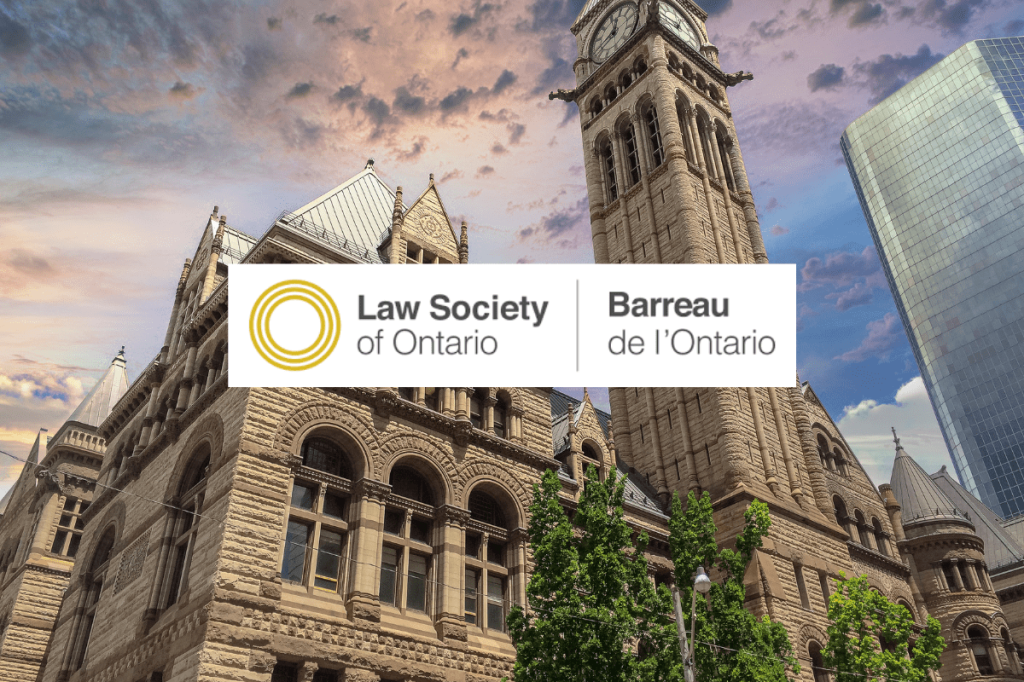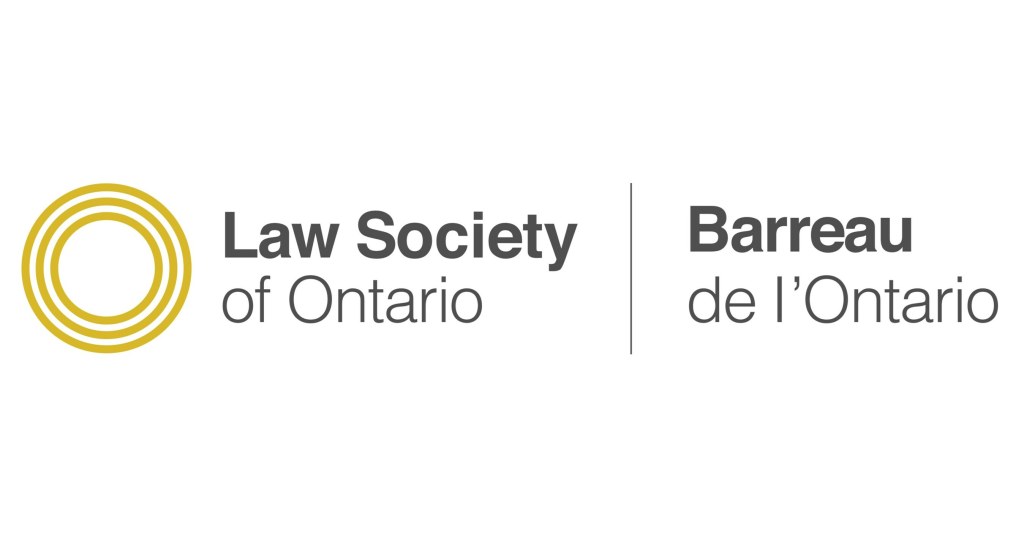Join The Law Society For Ontario: Empowering Legal Professionals And Enriching The Legal Landscape
Law Society for Ontario: Regulating the Legal Profession
Greetings, Readers! Today, we will delve into the world of the Law Society for Ontario, a regulatory body responsible for governing the legal profession in the province. In this article, we will provide you with a comprehensive overview of what the Law Society is, its responsibilities, and its impact on the legal community. So, let’s dive in!
Introduction
The Law Society for Ontario, often referred to as the LSUC, is an organization that plays a crucial role in maintaining the integrity and professionalism of the legal profession within the province. Established in 1797, it is one of the oldest self-regulated bodies in North America. The primary mandate of the Law Society is to protect the public interest by ensuring that all lawyers and paralegals practicing in Ontario meet the highest standards of competence, ethics, and professionalism.
2 Picture Gallery: Join The Law Society For Ontario: Empowering Legal Professionals And Enriching The Legal Landscape


The Law Society has been granted the authority to regulate and govern the legal profession under the provisions of the Law Society Act. This legislation empowers the LSUC to set and enforce rules and regulations governing the licensing, professional conduct, and discipline of lawyers and paralegals in Ontario.
One of the key responsibilities of the Law Society is the licensing and admission of lawyers and paralegals. It ensures that only qualified individuals are permitted to practice law in Ontario. The LSUC administers the licensing process, which includes education, training, and examinations to assess the competence and ethical standards of aspiring lawyers and paralegals.
Furthermore, the Law Society is responsible for establishing and enforcing a comprehensive code of professional conduct for lawyers and paralegals. This code sets out the ethical obligations and responsibilities that legal professionals must adhere to in their practice. It covers areas such as client confidentiality, integrity, avoiding conflicts of interest, and maintaining professional competence.

Image Source: hrlawcanada.com
In addition to regulating the conduct of its members, the Law Society also investigates and addresses complaints against lawyers and paralegals. It has a robust complaints and discipline process in place to ensure that any allegations of misconduct or negligence are thoroughly investigated and appropriate disciplinary action is taken, if necessary. Through this process, the LSUC aims to maintain public confidence in the legal profession and safeguard the rights of clients.
Overall, the Law Society for Ontario plays a vital role in upholding the standards and professionalism of the legal profession. Its regulatory functions ensure that legal services provided to the public are of the highest quality and adhere to ethical practices. By setting the bar for competence, ethics, and professionalism, the LSUC strives to protect the interests of society and maintain the integrity of the legal system in Ontario.
What is the Law Society for Ontario?
Emoji: ℹ️
The Law Society for Ontario, also known as the LSUC, is a self-regulated organization that governs the legal profession within the province. Established in 1797, it is one of the oldest regulatory bodies in North America. The Law Society’s primary purpose is to protect the public interest by ensuring that lawyers and paralegals in Ontario meet high standards of competence, ethics, and professionalism.
As a regulatory body, the Law Society has been granted the authority to set and enforce rules and regulations that govern the licensing, professional conduct, and discipline of lawyers and paralegals in Ontario. It is responsible for ensuring that only qualified individuals are allowed to practice law in the province.
Image Source: fbsbx.com
The Law Society also plays a crucial role in establishing and enforcing a code of professional conduct for lawyers and paralegals. This code sets out the ethical obligations and responsibilities that legal professionals must adhere to in their practice. It covers areas such as client confidentiality, integrity, avoiding conflicts of interest, and maintaining professional competence.
Furthermore, the Law Society investigates and addresses complaints against lawyers and paralegals. It has a comprehensive complaints and discipline process in place to ensure that allegations of misconduct or negligence are thoroughly investigated and appropriate disciplinary action is taken, if necessary.
Through its regulatory functions, the Law Society for Ontario strives to maintain the integrity of the legal profession and protect the interests of the public. By setting high standards for competence, ethics, and professionalism, the LSUC ensures that legal services provided to the public are of the highest quality.
Who does the Law Society Regulate?
Emoji: 👨⚖️
The Law Society for Ontario regulates lawyers and paralegals practicing within the province. It sets and enforces rules and regulations that govern their licensing, professional conduct, and discipline.

Image Source: prnewswire.com
All individuals who wish to practice law in Ontario must be licensed by the Law Society. This includes both Canadian and internationally trained lawyers. The LSUC administers the licensing process, which assesses the competence and ethical standards of aspiring lawyers.
Paralegals, on the other hand, are licensed by the Law Society to provide specified legal services under the supervision of a lawyer. Paralegals must meet the educational and training requirements set by the LSUC to obtain their license.
By regulating lawyers and paralegals, the Law Society aims to ensure that legal professionals in Ontario meet high standards of competence, ethics, and professionalism. This ensures that the public receives quality legal services and is protected from unqualified or unethical practitioners.
When was the Law Society Established?
Emoji: 📅
The Law Society for Ontario was established in 1797, making it one of the oldest self-regulated bodies in North America. It has a rich history and has played a significant role in shaping the legal profession in Ontario over the past two centuries.
Since its establishment, the Law Society has evolved to adapt to changing times and needs. It has continuously worked towards improving its regulatory functions and ensuring that the legal profession meets the highest standards of competence, ethics, and professionalism.
Where is the Law Society Located?
Emoji: 📍
The Law Society for Ontario is located in Toronto, the capital city of the province. Its headquarters are situated at Osgoode Hall, a historic building that serves as a prominent symbol of the legal profession in Ontario.
Osgoode Hall is a stunning architectural landmark that houses various courts, legal libraries, and professional organizations, including the Law Society. It serves as a hub for legal activities and provides a central location for members of the legal profession to gather and collaborate.
Being located in the heart of Toronto allows the Law Society to remain closely connected with the legal community and serve the needs of lawyers and paralegals throughout the province.
Why is the Law Society Important?
Emoji: ❗
The Law Society for Ontario plays a vital role in ensuring the integrity and professionalism of the legal profession within the province. It is important for several reasons:
Protection of the Public: The Law Society’s primary mandate is to protect the public interest. By setting and enforcing high standards for competence, ethics, and professionalism, it ensures that the public receives quality legal services and is protected from unqualified or unethical practitioners.
Maintaining the Rule of Law: The Law Society plays a crucial role in upholding the rule of law. By regulating the legal profession, it helps maintain public confidence in the justice system and ensures that legal services are provided in a fair and just manner.
Setting Professional Standards: The Law Society establishes and enforces a comprehensive code of professional conduct for lawyers and paralegals. This code sets out ethical obligations and responsibilities and promotes professionalism and integrity within the legal profession.
Complaints and Discipline Process: The Law Society investigates and addresses complaints against lawyers and paralegals. It has a thorough complaints and discipline process in place to ensure that allegations of misconduct or negligence are properly addressed and appropriate disciplinary action is taken, if necessary.
Continuous Professional Development: The Law Society promotes and supports ongoing professional development for lawyers and paralegals. It offers a wide range of educational programs and resources to help legal professionals enhance their skills and stay updated on legal developments.
By fulfilling these roles, the Law Society for Ontario contributes to the overall functioning and credibility of the legal profession. It helps maintain public trust and ensures that the legal system operates in the best interests of society.
How Does the Law Society Regulate?
Emoji: ⚖️
The Law Society for Ontario regulates the legal profession through various mechanisms:
Licensing and Admission: The LSUC is responsible for licensing and admitting individuals to the legal profession in Ontario. It sets and administers the licensing process, which includes educational requirements, training, and examinations to assess the competence and ethical standards of aspiring lawyers and paralegals.
Professional Conduct and Ethics: The Law Society establishes and enforces a code of professional conduct for lawyers and paralegals. This code sets out ethical obligations and responsibilities and promotes professionalism and integrity within the legal profession.
Complaints and Discipline Process: The Law Society investigates and addresses complaints against lawyers and paralegals. It has a thorough complaints and discipline process in place to ensure that allegations of misconduct or negligence are properly addressed and appropriate disciplinary action is taken, if necessary.
Continuing Professional Development: The Law Society promotes and supports ongoing professional development for lawyers and paralegals. It offers a wide range of educational programs and resources to help legal professionals enhance their skills and stay updated on legal developments.
Legal Practice Management: The Law Society provides guidance and support to legal professionals in managing their practices. It offers resources and assistance in areas such as practice management, professional liability insurance, and trust accounting to ensure that lawyers and paralegals operate in a competent and ethical manner.
Through these regulatory mechanisms, the Law Society for Ontario ensures that the legal profession meets high standards of competence, ethics, and professionalism. It aims to protect the public interest and maintain the integrity of the legal system within the province.
Advantages and Disadvantages of the Law Society for Ontario
Emoji: 👍👎
Advantages:
Protection of the Public: The Law Society’s primary mandate is to protect the public interest. By setting and enforcing high standards for competence, ethics, and professionalism, it ensures that the public receives quality legal services and is protected from unqualified or unethical practitioners.
Regulation of the Legal Profession: The Law Society plays a crucial role in regulating the legal profession. It sets and enforces rules and regulations that govern the licensing, professional conduct, and discipline of lawyers and paralegals in Ontario, ensuring that they meet high standards of competence and ethical practice.
Ethical Standards: The Law Society establishes and enforces a code of professional conduct for lawyers and paralegals. This promotes ethical standards and professionalism within the legal profession, ensuring that legal services are provided with integrity and in the best interests of clients.
Complaints and Discipline Process: The Law Society has a robust complaints and discipline process in place to address allegations of misconduct or negligence by lawyers and paralegals. This ensures that any breaches of professional conduct are properly investigated and appropriate disciplinary action is taken, safeguarding the rights and interests of clients.
Continuing Professional Development: The Law Society promotes ongoing professional development for lawyers and paralegals. It offers educational programs and resources to help legal professionals enhance their skills and stay updated on legal developments, ensuring that they provide the best possible service to their clients.
Disadvantages:
Regulatory Burden: Some legal professionals may view the Law Society’s regulations as burdensome and time-consuming. Compliance with licensing requirements, professional conduct rules, and continuing professional development obligations can add administrative and financial burdens to practitioners.
Limitations on Innovation: The strict regulatory framework of the Law Society may limit the ability of lawyers and paralegals to innovate and adapt to changing market demands. Some legal professionals may feel that the rules and regulations imposed by the LSUC restrict their ability to provide innovative legal services.
Costs: The fees and expenses associated with licensing, regulation, and ongoing professional development imposed by the Law Society can be a financial burden for legal professionals, particularly those in the early stages of their careers or from disadvantaged backgrounds.
While the Law Society for Ontario provides numerous advantages in terms of protecting the public interest and maintaining the integrity of the legal profession, it also carries certain disadvantages that may impact legal professionals. It is important to strike a balance between regulation and the flexibility necessary to foster innovation and ensure access to justice.
Frequently Asked Questions (FAQ)
1. Can anyone practice law in Ontario without being licensed by the Law Society?
No, in order to practice law in Ontario, individuals must be licensed by the Law Society for Ontario. The LSUC sets and administers the licensing process, which includes educational requirements, training, and examinations to assess the competence and ethical standards of aspiring lawyers.
2. How can I file a complaint against a lawyer or paralegal?
If you have a complaint against a lawyer or paralegal, you can file a complaint with the Law Society for Ontario. The LSUC has a complaints and discipline process in place to address allegations of misconduct or negligence by legal professionals. You can find more information on the Law Society’s website on how to file a complaint.
3. What disciplinary actions can the Law Society take against lawyers and paralegals?
The Law Society for Ontario has the authority to take various disciplinary actions against lawyers and paralegals found guilty of professional misconduct or incompetence.
This post topic: Law and Society

